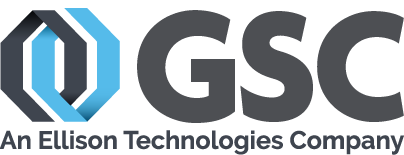
The Science of Plastics
Date: November 5
Time: 7:30 am - 1:30 pm
Location: West Bend, WI
Venue: Moraine Park Technical College – Advanced Manufacturing Center, West Bend, WI
This one-day program brings together industry experts, educators, and innovators to explore the evolving world of plastics—from cutting-edge science to real-world applications. Whether you’re optimizing part design, exploring material behavior, or navigating the complex world of compliance and sustainability, this event will provide help you take your 3D engineering capabilities to the next level.
What You’ll Learn:
- Best practices for designing parts and tooling specifically for injection molding
- How SABIC Specialties’ distinguished technical experts take rigorous steps to ensure the CAE simulation plastics material data they generate is trusted, validated and accurate – including an exclusive behind-the-scenes look inside one of the most sophisticated injection molding research laboratories in the world
- How regulatory trends and innovation are reshaping the future of plastics and manufacturing
- Insights from a customer success story with Rosti Group, including real-world applications
- Opportunities to connect in roundtable discussions with peers and experts on key industry topics
Agenda:
7:30 – 8:00 | Light Breakfast & Networking
8:00 – 8:50 | Keynote: Plastics and Possibility: Innovation, Regulation & What’s Next
Keynote Speaker: Len Czuba, SPE
9:00 – 9:50 | Session 1: Mind the Input: Material Data Makes or Breaks CAE
Special Guest Speaker: SABIC Specialties Material Data Scientists; Supporting Speaker: Peter Rucinski
10:00 – 11:00 | Customer Success Story with Rosti Group
Roundtable discussions at topic-focused tables
Speaker: Emily Bader
11:00 – 12:00 | Session 2: Design for Injection Molding – Tooling Considerations
Speaker: Chris Schaefer
12:30 – 1:30 | Session 3: Design for Injection Molding – Part Design
Speakers: Chris Schaefer & Peter Rucinski
A message from Keynote Speaker—Len Czuba, SPE:
The Virtually Limitless New Product Development Opportunities in Healthcare, Medical Devices, Diagnostics and Pharmaceutical Manufacturing Industry!
The medical device industry has largely grown because of the availability of reliable and effective single-use devices built with superior, relatively low-cost polymers that provide safety and ease of use in sophisticated, affordable medical devices. Devices support the healthcare that is delivered every day in hospitals, clinics and home-healthcare. From drug delivery to surgical instruments, from blood collection to biopsy diagnosis, from the bio-reactors to the medicines made by bio-pharmaceutical manufacturers; all these rely heavily on the devices, instruments and tools that are most often made of polymeric devices.
Starting with an initial concept, design engineers work to develop a product that meets the needs of the market. This process from concept to finished device requires teams of trained and talented personnel to take that concept from the napkin sketch to part designed, prototype and eventually to a molded part that is then fabricated and coupled together with other components to create a finished device or instrument. This process requires trained engineers that can select the material to be used, design the part, others that can understand the process required to mold or 3D print or to machine the component. These teams need to assemble, test and finally conduct all the qualification testing that will allow that device or instrument, diagnostic supply or tool assembly to be used in drug delivery, patient care, health assessment diagnostic or bio-pharmaceutical manufacturing.
Every corporation out there got their start with an idea that was developed and found successful, purchased, allowing them to grow. The companies like Baxter, Abbott, Medtronic,
Becton Dickinson, Edwards Lifesciences, 3M, Eli Lilly, Harley Davidson and Boston Scientific all started with an idea or concept that was developed into a successful product that was useful, purchased by customers and grew into something that helped these companies to become the mega-corporations they now are! But there are many links between that concept and the final product in the hands of the purchaser. That is where we fit in!
I will share how teams help take the concept through all the stages of development and manufacturing and for medical devices, qualification that allows that product to be used by those that need or want it. I will share case studies and offer lessons that I learned along the way!
